The annual camel-wrestling festival is held in mid-January on Turkey’s Aegean coast near the town of Selcuk. Camels naturally wrestle in the wild. The staged matches aren’t allowed to get too wild. A camel wins by making its opponent scream, fall or retreat, and trainers remain close at hand to ensure neither party is injured. Winners are rewarded with a mass-produced Turkish carpet.
Well suited to desert conditions, camels were used in medieval times as pack animals along the Silk Road. They’re still used by nomadic tribes in much of Central and South Asia — in Afghanistan, Pakistan and Iran. Occasionally they’re still used in Turkey.
With a legacy rooted in ancient Turkic tribes, the community of Turkish camel owners, trainers and dromedary lovers is still vibrant and competitive. Largely discouraged in the 1920s, the practice saw a rebirth in the 1980s, as interest in Turkey’s traditional cultures grew.
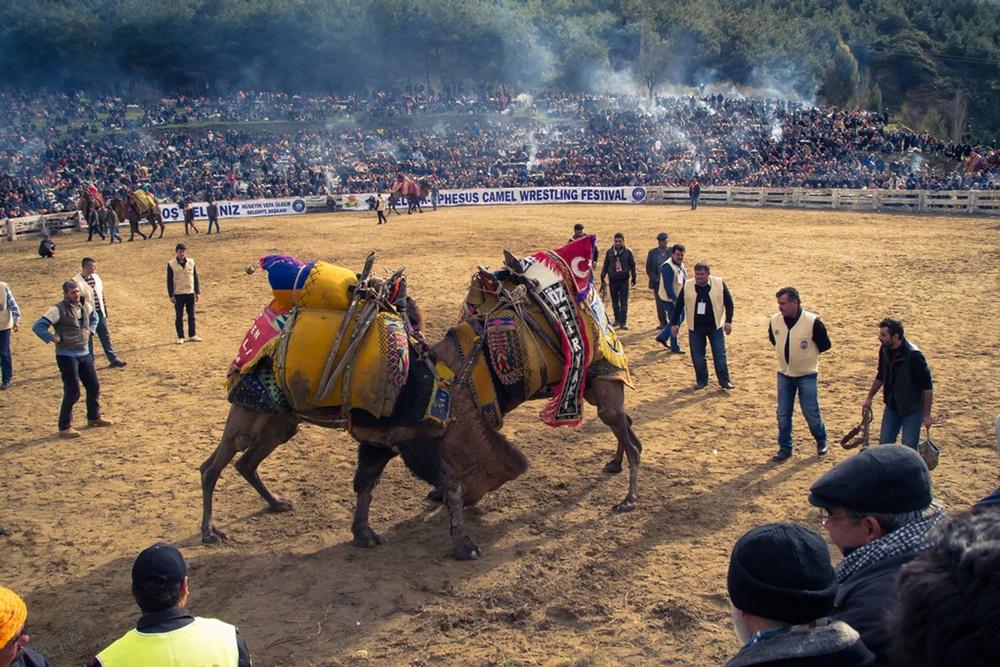
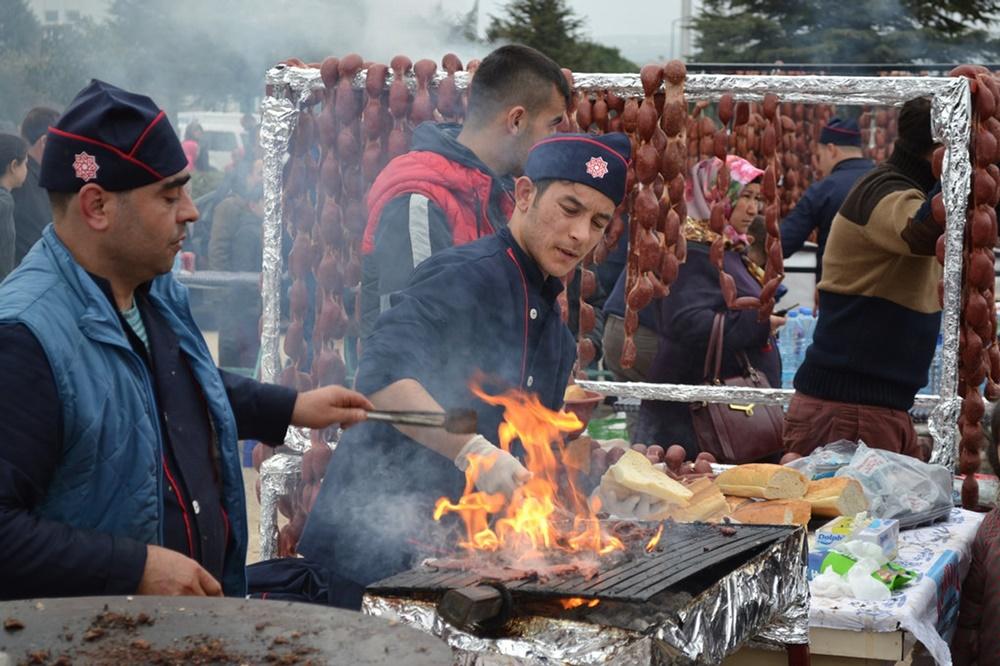
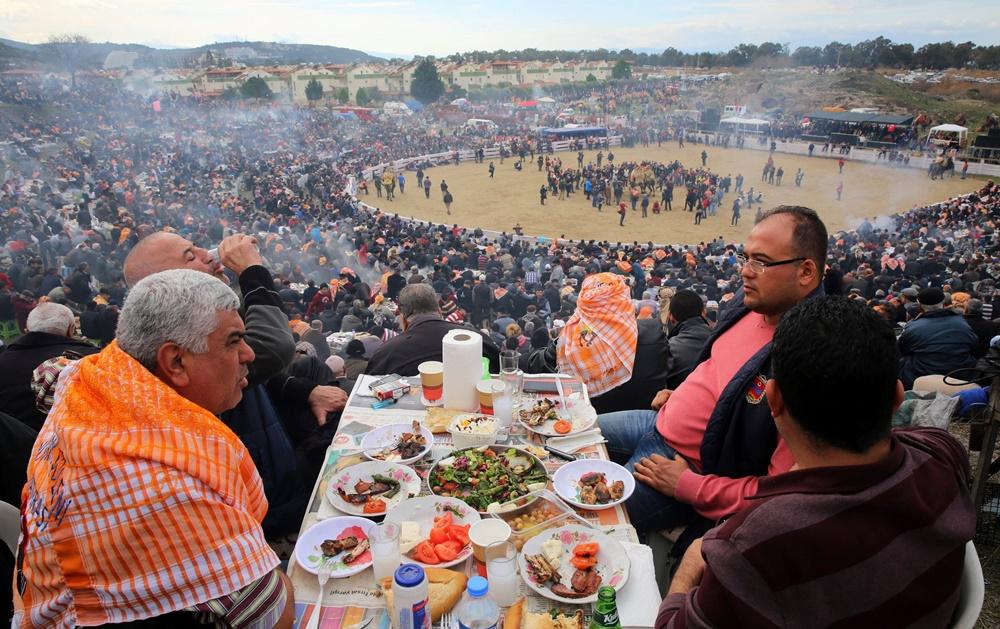
Vendors prepare camel-meat sandwiches at stalls near the wrestling arena.
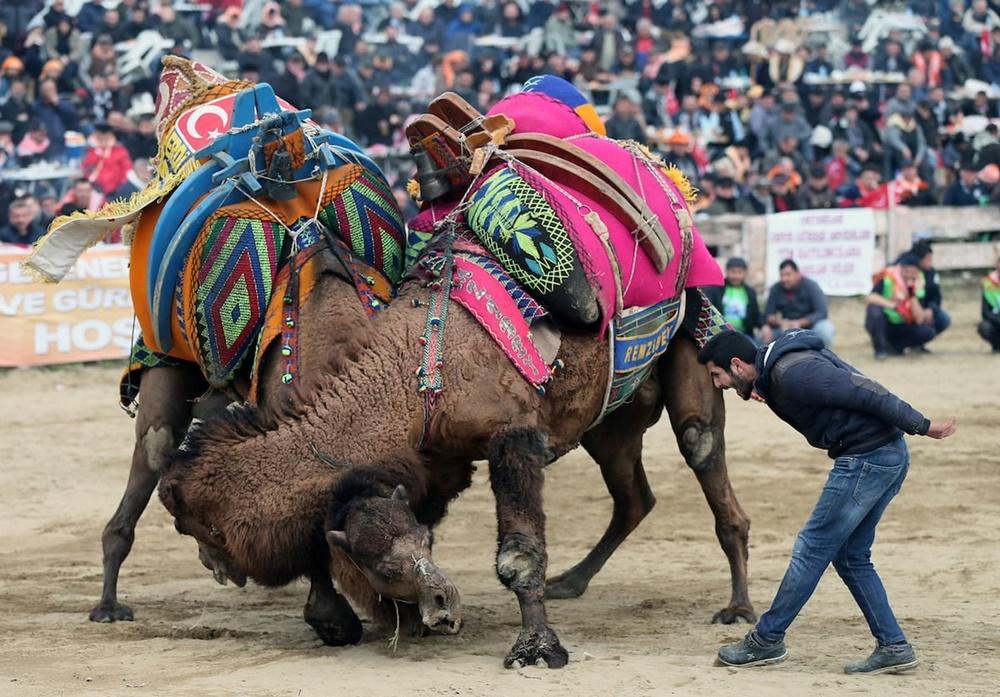
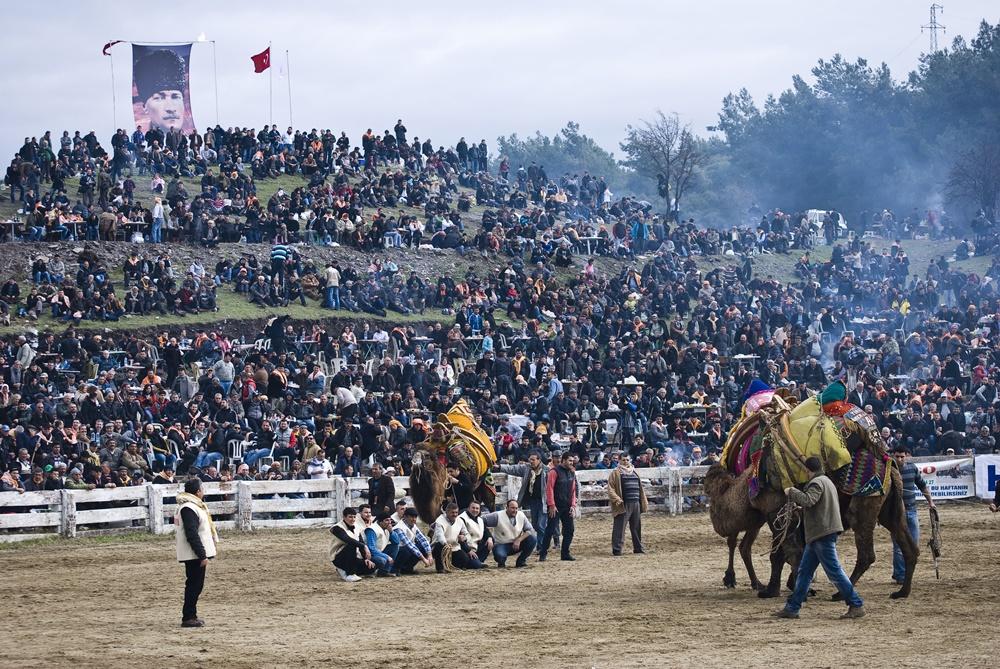
The camels wrestle once a day, and each match lasts around 15 minutes — again, to protect the animals’ welfare. Before entering the ring, the male camels are brought close to a female camel, but the animals are not allowed to touch, resulting in a sexual tension which the trainers say provides the males with extra strength.
The animals used in wrestling events are known as Tulu camels — a breed that results from mating a Bactrian (two-humped) camel with a dromedary (one-humped) camel — and are bred specifically for the competitions.
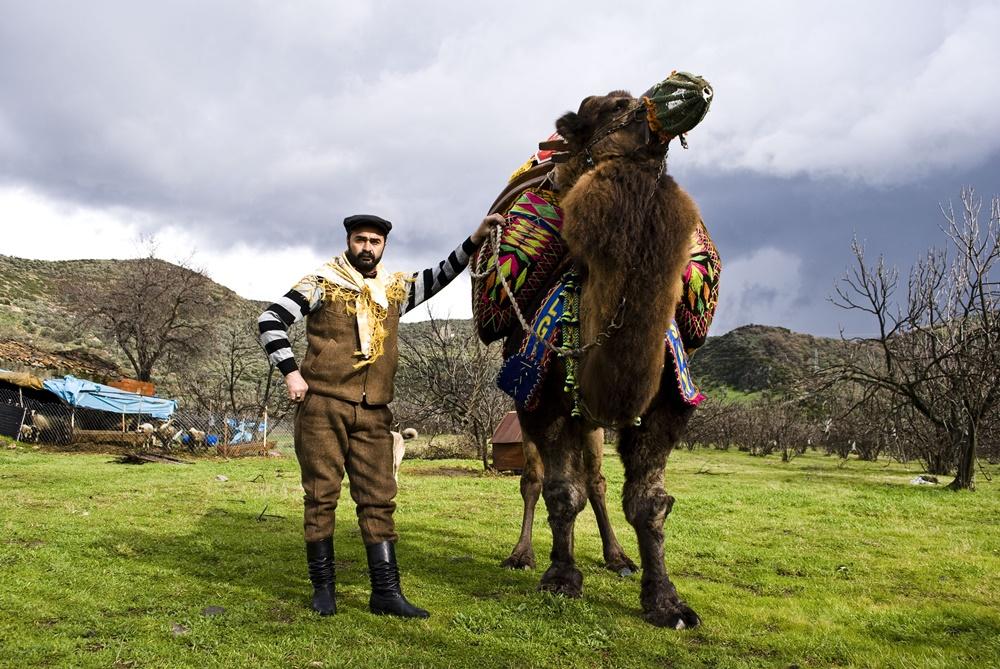
The camel trainers are lively and care deeply about their animals. Several trainers sleep with the camels overnight in a barn on the outskirts of town, to ensure their well-being and deter thieves.

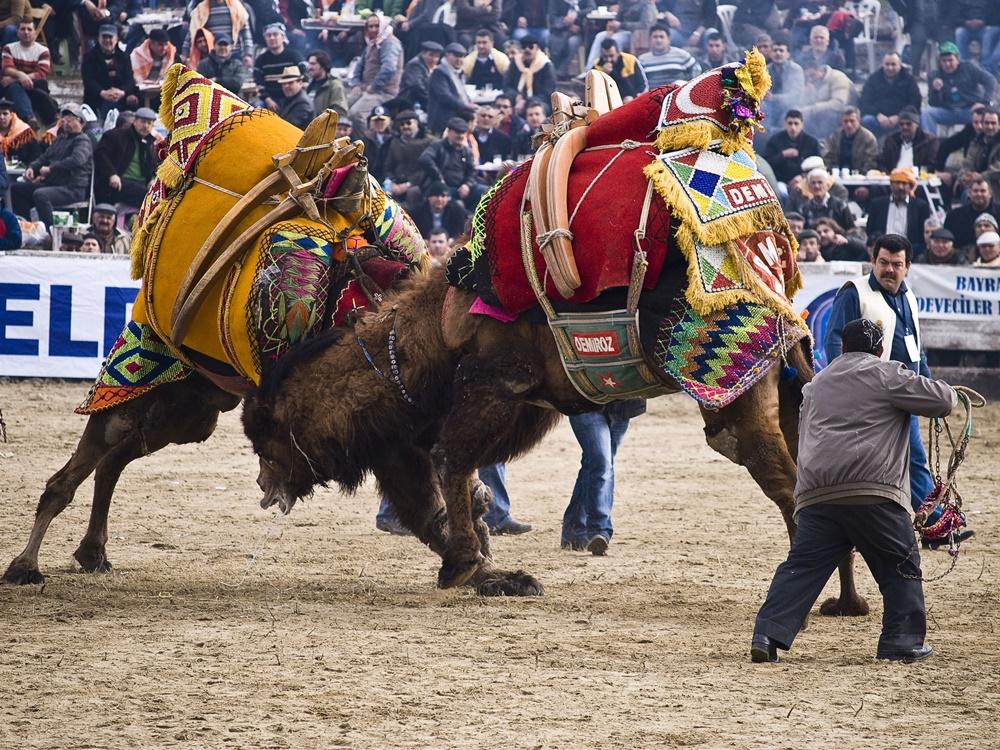






 Dr. Bilal Philips
Dr. Bilal Philips